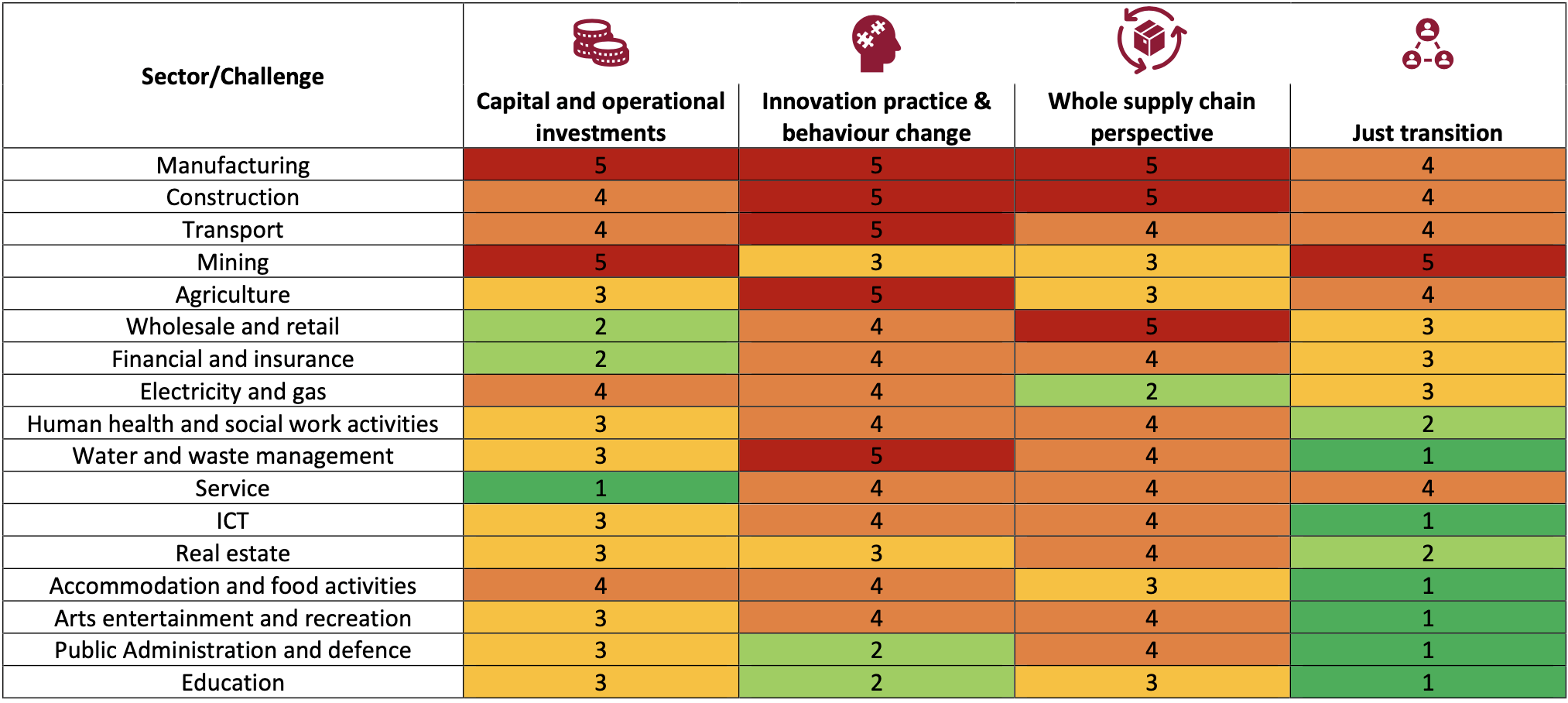Retail amongst industries facing toughest road to net zero
03 February 2022
- Wholesale and retail trade is among the six UK industries that will struggle most to decarbonise
- Logistics and waste highlighted as key challenge areas for the sector
- But solutions exist, from offering consumers a traffic-light carbon emissions label on products, to promoting circular economy systems
The UK wholesale and retail sector faces one of the hardest journeys to decarbonisation, according to a new report.
The Journey to Net Zero report, commissioned by insurer Zurich UK and conducted by the University of the West of England, identifies retail as one of the top six sectors that will struggle most to reduce their emissions and meet UK Net Zero targets.
The British Retail Consortium (BRC) has committed to reaching Net Zero by 2040, but the report signposts a number of challenges ahead. Food and drink retailers are anticipated to face a particularly difficult transition, as the grocery sector produces the highest share of retail industry carbon emissions.
Challenges and solutions
One of the key barriers to decarbonisation identified in the report was accounting for emissions that are embedded in the supply chain, particularly emissions that are generated when goods are transported from source to point of sale. Retailers can tackle this by working closely with their suppliers to accurately measure supply chain emissions, and by prioritising sustainable sourcing for their products.
The report also identified waste as a significant sustainability issue, highlighting the need for retailers to consider what happens to their products after they are purchased. Household food and textile waste is a major contributor to landfill emissions and diverting these products from landfill by finding ways for them to be reused through the circular economy should be a focus for retailers.
Behaviour change is another major challenge facing the retail sector. Increasing consumer understanding of carbon emissions at the point of sale through a ‘traffic-light’ system, where red-labelled products have the highest carbon footprint and green the lowest, could have a positive impact on changing buying habits. The report suggests that behaviour change initiatives like this would benefit from co-ordinated Government support and legislation to ensure they are implemented widely and consistently.
Lowering carbon emissions must be at the core of decision-making and business operations. This includes reducing emissions from shops and stores. Many retailers are already making in-roads in this department, but major energy improvements are still required, from better monitoring of energy usage and control systems, to using more efficient refrigerators and LED lights.
Sam Thomas, Head of Mid-Market at Zurich UK said:
“As this report shows, the decisions that consumers make when they purchase, use and dispose of products all impact carbon emissions connected to the industry. Retailers therefore have an important role to play in influencing consumer behaviour and helping customers to make low carbon choices, whether that’s through the provision of information, the reduction of packaging and waste or the availability of efficient, long lasting and responsibly sourced products, amongst other initiatives. Government support would help retailers and the connected supply chain to facilitate a more informed consumer purchase, and drive the behaviour change that would benefit our wider communities.”
Dr Laura de Vito, lead report author from the University of the West of England Faculty of Environment and Technology said:
“The UK industrial sectors are highly interconnected and therefore it is important to adopt a joined-up and collaborative approach to Net Zero. Solutions are available - we now must focus our efforts in implementing them, especially in light of the recent IPCC report which demands urgent and decisive change.
“The UK government will need to play a crucial role in driving this change at the required scale and pace, and in unlocking collaboration opportunities across industry sectors and at all levels of society.”

Table: Sectors and challenges identified by the report in a ranked grid
Report methodology
Each of the 17 UK Standard Industry Categories (SIC) were audited using a wide range of scientific and government literature with a broad increasing/stable/decreasing trend marked against each. In addition, the scale of each industry’s challenge was outlined by scoring across four sub-categories:
- reducing cost
- innovation and behaviour change
- whole of supply chain challenge
- just transition challenges.
Further methodology clarification detailed in full report (available upon request).
For further information please contact:
Emily Goodbrand Dillon, Third City
emily@thirdcity.co.uk
07719 939 901
Victoria Dickson, Third City
vicd@thirdcity.co.uk
07879 815 308
or email zurich@thirdcity.co.uk